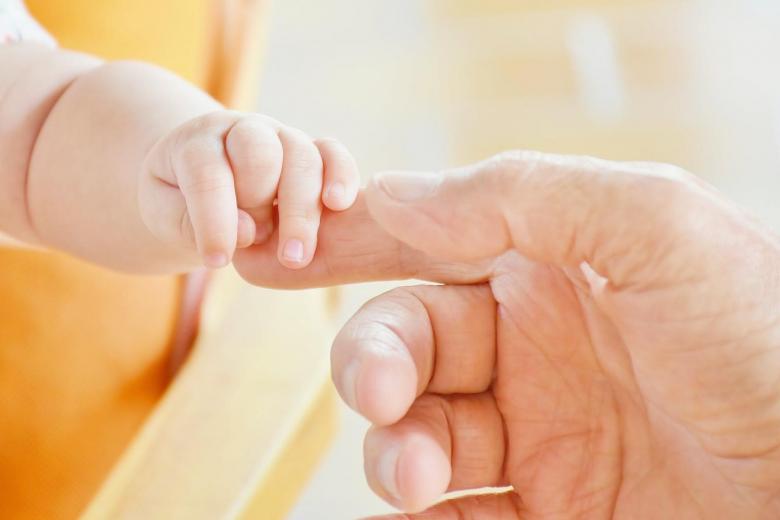A baby’s movements and babblings in his first year may be tell-tale signs of developmental issues, which often go unnoticed until later.
Not meeting critical milestones such as rolling over or sitting may be signs of motor delays, for example, or not responding to sounds could be indicative of language disorders.
A new $12.1 million initiative aims to detect such needs as early as two months old, so that children get more timely help.
When fully implemented, about 1,800 children aged two months to four years old will benefit each year from the programme, which will be launched in 16 pre-schools over the next four years.
The centres, run by the PAP Community Foundation (PCF), are located in Punggol and Sengkang.
The pilot scheme, known as Mission I’mPossible (MIP2), will bring together different groups of professionals to support these children and their parents.
An interdisciplinary team, comprising early intervention professionals, curriculum specialists and therapists, will work alongside social workers, nutritionists and nurses in the same setting to meet the needs of children.
The programme by PCF, KK Women’s and Children’s Hospital (KKH) and philanthropic organisation Lien Foundation aims to show how children can receive education, healthcare and social services within pre-schools.
The interdisciplinary team of about 10, known as the school-based child development unit, will move around the pre-schools and work with their teachers.
About 250 early childhood educators will also be trained to identify and support children with developmental needs.
The programme will cost $12.1 million, of which $9.27 million is a gift from the foundation. The rest of the amount is funded by PCF and KKH. Most of the funds will go towards manpower costs.
In a joint statement on Wednesday (Jan 26), PCF, KKH and Lien Foundation said that screening is currently done at the ages of five or six at pre-schools conducting the existing Development Support-Learning Support (DS-LS) programme.
Children identified to have developmental needs are then supported within the pre-school or referred to other services such as the Early Intervention Programme for Infants and Children programme (Eipic).
This leaves a short runway of one to two years before children enter primary school, and it can take months to enrol in Eipic, said the statement.
Lien Foundation programme director Ng Tze Yong said that lowering the age of screening to as young as two months old will help give children “the earliest possible head start”.
He added that the initiative also hopes to address some of the challenges parents of children with developmental needs face, including the extra time and logistics needed to get a medical diagnosis and timely intervention.
Currently, parents need to first make an appointment for a preliminary assessment by a primary care doctor, such as one at a polyclinic, before another appointment at KKH to be evaluated can be made for them, if necessary.
Said Mr Ng: “The extra step of having to see a primary care doctor serves an important purpose of triaging (sorting patients). But it also unintentionally results in children falling through the cracks…
“Parents who may be facing difficult circumstances may struggle to make it to the appointment, or settle on a wait-and-see approach instead. This may result in the child’s condition deteriorating unnecessarily. It is a pity, because the help is available but not accessed due to logistical challenges.”
Under MIP2, parents will receive help from social workers in areas such as self-care, family activities and navigating government schemes and processes. Support will be provided for children from pilot pre-schools transitioning to the next leg of their education journey.
Dr Honey Ng, PCF’s deputy director for inclusive education, said MIP2’s goal is to support children with developmental needs in the natural classroom environment.
“This is key for PCF as we believe that every child deserves a good start with quality pre-school education, despite their diverse learning abilities. An inclusive environment also encourages children to be more empathetic and loving, and embracing of others with different abilities,” she said.
Associate Professor Chan Yoke Hwee, chairman of the KKH’s division of medicine and programme director of MIP2, said: “Studies have demonstrated that attendance in a high-quality pre-school programme and therefore attention to a child’s physical and cognitive development in early childhood are associated with better metabolic and mental health, as well as academic and socio-economic outcomes later in life.”
A study will be done after four years to evaluate the lessons from this pilot.
MIP2 builds on its predecessor, MIP1, which was launched in 2009 by the same partners – PCF, KKH and Lien Foundation. The scheme then began as a three-year pilot in 25 pre-schools.
Upon completion, it was adapted by the Government and renamed the DS-LS programme, which is today available to more than 40 per cent of children aged five to six, and in more than 600 pre-schools.
